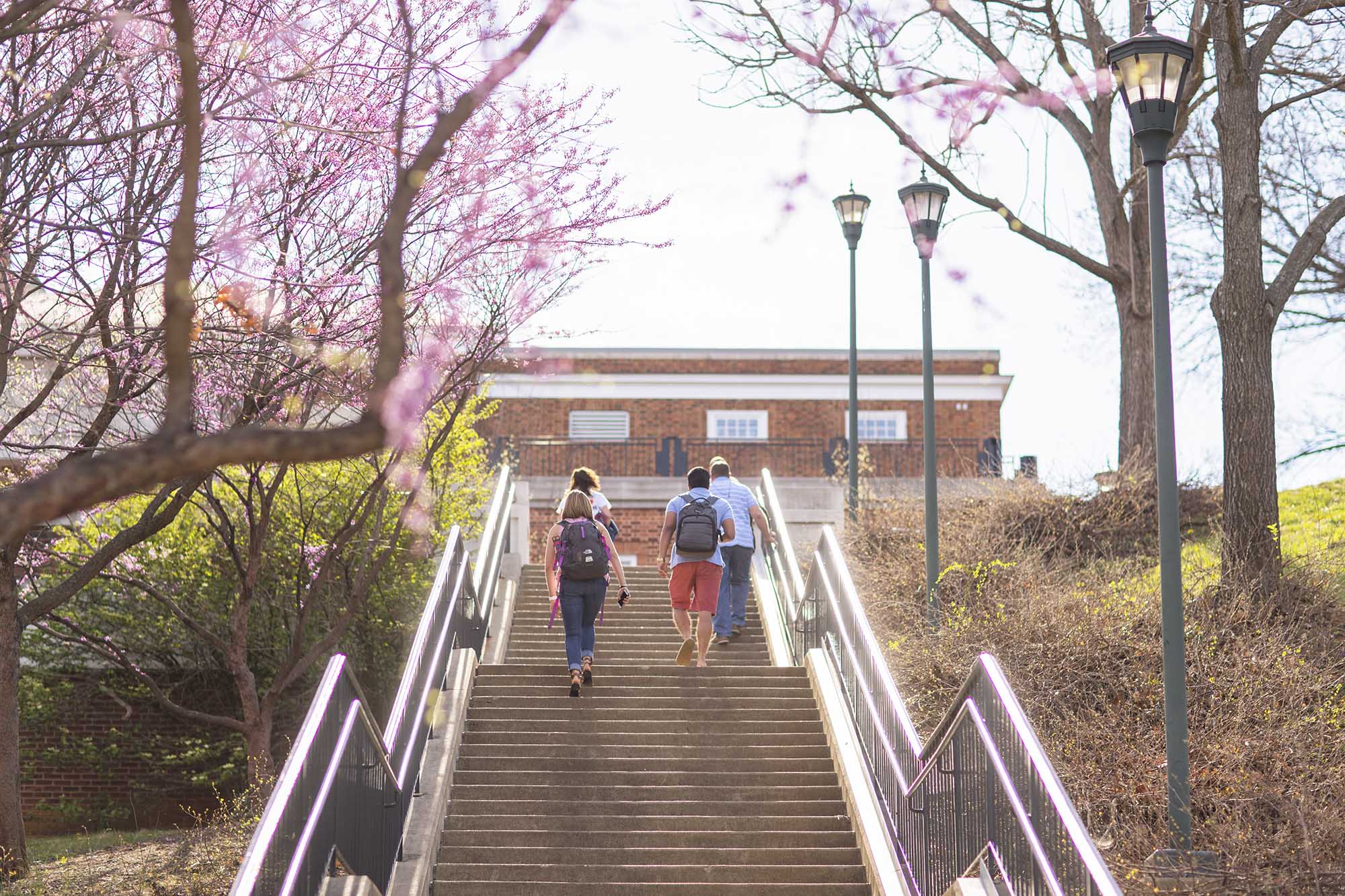The University of Virginia is unveiling a dynamic new internship program aimed squarely at the Class of 2022, which has missed out on these types of crucial, pre-employment opportunities because of the coronavirus pandemic.
Stewarded by the UVA Career Center, the “Hoos Internship Accelerator” is unique because it draws heavily from alumni to offer up to 500 summer internships, and provides between $1,000 to $4,000 in UVA-supplied stipends for otherwise-unpaid opportunities.
“With COVID last summer and this summer, the Class of 2022 has really not had internship opportunities and experiential learning opportunities they really do need to build up their résumé for their fourth-year job search,” said Everette Fortner, the associate vice president of career and professional development and the head of the UVA Career Center. “We felt we needed to step out and find ways to get them that experience.”
That lack of internships is borne out in numbers from last year. Glassdoor, a leader on insights about jobs and companies, said in May that “internship hiring on Glassdoor for May 2020 has fallen 49% compared to May 2019.”

Handshake, a recruiting platform used by the Career Center, reported in April that 23% of students “who had secured an internship had their offer rescinded.” And an April survey by the National Association of Colleges and Employers found that 15% of summer 2020 internship programs reduced the number of interns.
Summer 2021 is presenting similar challenges. This is why the Career Center is acting, Fortner said. “We were brainstorming and said, ‘How can we engage UVA alumni to provide internships? And if they can’t afford to pay for them, or they’re in nonprofit or startup work, then can we get the funds to offer stipends to cover student expenses?’”
Fortner said the University responded. “University Advancement, the Parents Fund, Student Affairs and the Career Center have all kicked in money to get the first $500,000 for the program,” he said. While UVA strongly encourages employers to provide paid internships, “If we have more alumni respond, we will try to raise more funds to offer stipends for even more internships,” Fortner said.
The internships will range in length from four to eight weeks at UVA, in Charlottesville and beyond. Indications thus far are that 80% of the internships will be virtual. They will span many fields, from public service and sustainability to arts and entertainment.
While the program is aimed mainly at rising fourth-year students, rising second- and third-year students are also invited to apply.
The Hoos Internship Accelerator will be heavily promoted to low-income, first-generation and underrepresented minority students. Students who demonstrate a high financial need based on FAFSA records will be eligible to apply for an additional stipend. A typical internship is 20 to 25 hours per week.
Alumni and other members of the employment community are invited to submit internship opportunities and are asked to indicate whether or not they are able to offer paid opportunities by April 1.
Student applicants must be in good standing at the University and can apply for internships via Handshake until April 18, with virtual or phone interviews to take place between April 22 and May 6. Internship offers will be made between May 7 and 10, with internships beginning in June.
“We have been doing funding for unpaid internships on a much smaller scale for years,” Fortner said. “The newness of this is the massive outreach to alumni to ask them to provide an internship and the significant increase in funding that we have available to help students.
“We would love to have such success with this program that the University sees fit to provide this kind of funding every year,” he said.
Media Contact
Article Information
March 17, 2021
/content/hoos-internship-accelerator-closes-gap-created-covid-19

